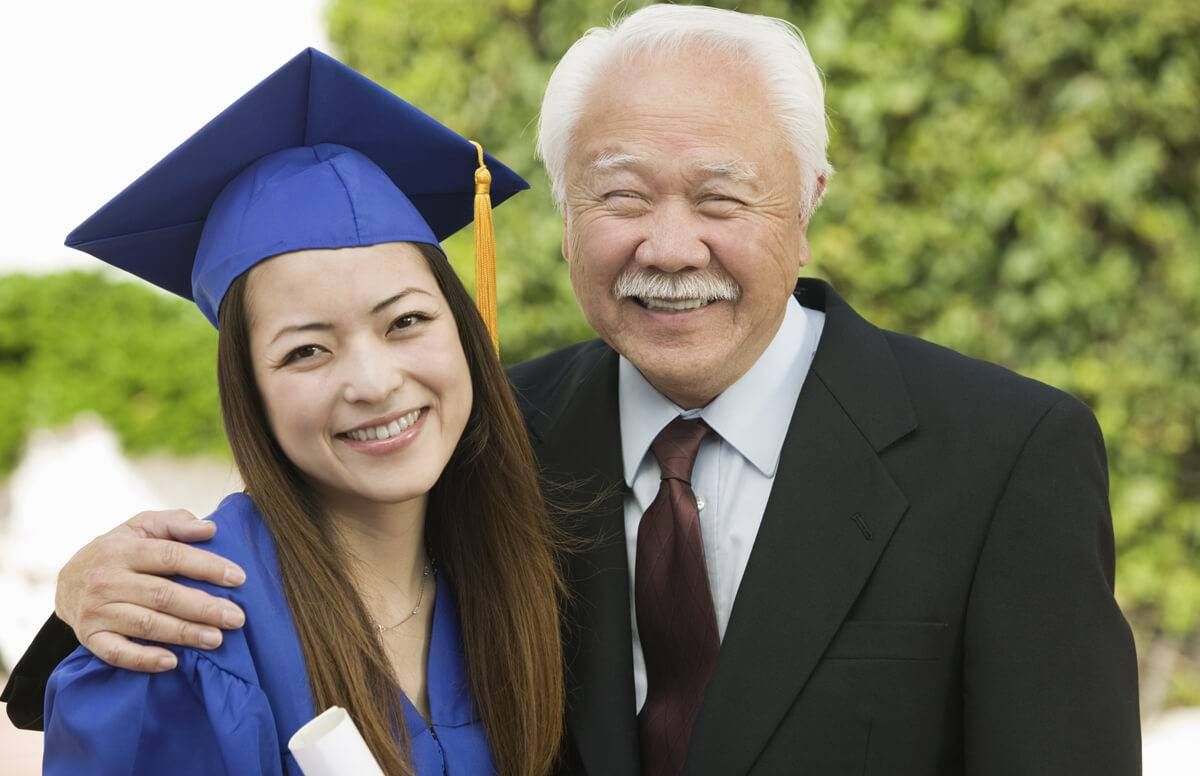What to Know Before Helping to Pay for a Grandchild's College
It sounds like the perfect gift, but doing this right is tricky
Is there a better legacy than that helping provide your grandchild a college education? Many grandparents do just that. According to a 2017 TD Ameritrade survey, 19 percent of grandparents contributed to a grandkid’s college savings in the previous year.

Covering the cost of your grandchild’s college education feels like the perfect way to give him or her a leg up in life. And you get to enjoy seeing your gift put to practical use. But is this really the best option for helping? Here’s what you need to know before committing to pay for college.
The First Question to Ask
First, ask yourself: Are you financially able to handle the costs? “Parents and grandparents alike want to do everything they can to help their children and grandchildren succeed,” said Kristen Reed Edens, a freelance writer who covers money and retirement. “At one time, paying for their college education was a loving way to support that child. Today, the story is very different.”
Many grandparents themselves are struggling financially, Edens noted. And even if you’re not facing difficulties now, that could change, especially if you have to take out private student loans to pay the tuition bill.
The number of older student loan borrowers has quadrupled since 2005, according to a 2017 report from the Consumer Financial Protection Bureau (CFPB). Most of the older borrowers aren’t taking on debt for themselves; their loans are for others’ education.
Saddling yourself with tens of thousands of dollars in student loan debt could severely impact your retirement for a decade or more as you attempt to repay it.
Andrew Anable, a financial planner at Safeguard Investment Advisory Group, recommends securing your retirement before helping anyone else with their financial and life goals. If things go south, you don’t want to be in a position where you need to skip making the student loan payments and then risk having your Social Security benefits garnished.
The Effect on Financial Aid
You’ll also want to consider how paying for your grandchild’s college might impact his or her financial aid.
“If your grandchild is receiving financial aid, a cash gift can actually reduce the amount of aid they’ll receive,” said Jack Schacht, co-founder of My College Planning Team, a company specializing in helping students find affordable higher education options.
Schacht pointed out that the Internal Revenue Service won’t tax grandchildren for a gift; in 2018, you can make a gift of up to $15,000 per person without being taxed.
However, your grandchild’s school might count your gift or contribution as untaxed income and use it to calculate a lower financial aid offer.
Schacht said planning ahead to assist your grandchildren is vital. “Just surprising them with a big check can cost them in the long run,” he said.
Opening a 529 Plan for Your Grandchild
Rather than handing over a check, Schacht suggested, open a 529 plan with the grandchild as a beneficiary.
“It isn’t included on the student’s FAFSA [the federal financial aid form],” he added. “Plus, both earnings and withdrawals are tax-free as long as the money goes toward qualified education costs.”
There’s a catch to this plan, though. Once the student withdraws funds from a grandparent-owned 529 to pay tuition, the money is treated as income on the FAFSA form for two years.
So, “consider delaying payments until after the student is a junior and has filed their last FAFSA,” said Schacht.
Other Ways to Help
Instead of paying for college outright, there are other ways to help your grandchild get the funding for school. For instance, you could help your grandchild apply for student loans that don’t require parents or grandparents be cosigners.
Edens also said grandparents can help take the pressure off college students by: offering to tutor your grandchild or pay for a tutor or by paying for room and board for a year or two.
You might also offer to cosign a private loan for your grandchild if federal loans aren’t enough to cover the cost of an education. Since many younger students don’t have the credit or income needed to qualify for private loans, your good financial standing can help.
You have to be careful, though, said Anable. When you cosign, you become responsible for the debt if the student doesn’t pay. Plus, cosigning can impact your credit.
For private loans, find out if in-school repayment is required. Some private student loans let borrowers put off their first payment until after graduating. Look for private lenders that have flexible terms so you aren’t on the hook while your student is still in school.

